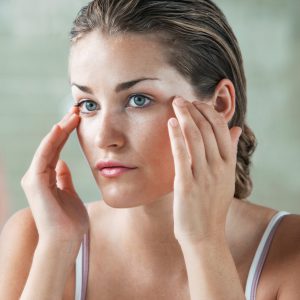
If you have been diagnosed with lichen sclerosis of the vulva, you know the desperation associated with this diagnosis. Lichen sclerosis is a debilitating skin condition that results in itching, pain, discoloration, easy tearing, and even ulceration of the involved area. Progressive changes to the vulva can make sex painful because itching and scarring cause narrowing of the vaginal opening. Inflammation and blistering cause skin sensitivity and fissuring, resulting in skin splitting open and bleeding. Pain leads to decreased ability and desire for sex. If left untreated, ulceration can progress to cancer.
Lichen sclerosis frequently involves the skin of the vulva and around the anus. The cause of lichen sclerosis in uncertain, but it is affected by immune status and hormone levels. While anyone can get lichen sclerosis, postmenopausal women are at highest risk.
Lichen sclerosis is traditionally treated with a topical corticosteroid. The steroid addresses the inflammation. However, it also results in thinning of the tissue, which can worsen the symptoms of pain and bleeding.
Life Studios Medical Group is a leader in the clinical use of the MonaLisa Touch laser for lichen sclerosis. We have had incredible success using the MonaLisa Touch laser to put lichen sclerosis into remission. Patients have self-referred to Life Studios Medical Group from all over California for relief of lichen sclerosis symptoms. We have developed a protocol for a series of treatments resulting in resolution of symptoms. Many of our patients have been able to cease use of steroid creams altogether. Remission is not the same as a cure, however. Lichen sclerosis is a chronic condition, needing long-term management.. Semi-annual maintenance treatment is recommended. My experience with treatment in the earlier stages of disease is for a quicker and more complete improvement than those who have been forced to wait until the discomfort is unbearable because treatment was not available or offered. MonaLisa Touch is currently FDA cleared for treatment of vulvovaginal atrophy in the U.S. Treatments are not covered by insurance, and typically cost $500 per treatment.
By Denise Sweeney, M.D., FACOG

